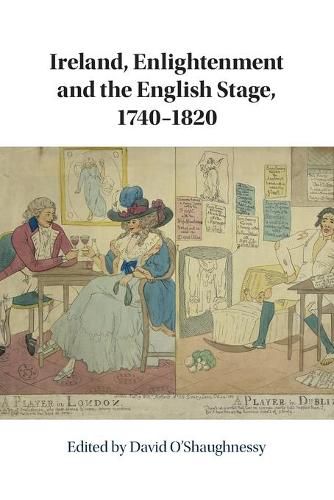Readings Newsletter
Become a Readings Member to make your shopping experience even easier.
Sign in or sign up for free!
You’re not far away from qualifying for FREE standard shipping within Australia
You’ve qualified for FREE standard shipping within Australia
The cart is loading…






The theatre was a crucial forum for the representation of Irish civility and culture for the eighteenth-century English audience. Irish actors and playwrights, operating both as individuals and within networks, were remarkably popular and potent during this period, especially in London. As ideas of Enlightenment percolated throughout Britain and Ireland, Irish theatrical practitioners - actors, managers, playwrights, critics and journalists - exploited a growing receptivity to Irish civility, and advanced a patriot agenda of political and economic autonomy. Mobility, toleration and the capacity to negotiate multiple allegiances are marked features of this Irish theatrical Enlightenment, whose ambitious participants saw little conflict between their twin loyalties to the Crown and to Ireland. This collection of essays responds to recent work in the areas of eighteenth-century theatre studies, Irish studies and Enlightenment studies. The volume’s discussions of genre, colonialism, gender, race, music, slavery, and dress open up new avenues of scholarship and research across disciplines.
$9.00 standard shipping within Australia
FREE standard shipping within Australia for orders over $100.00
Express & International shipping calculated at checkout
The theatre was a crucial forum for the representation of Irish civility and culture for the eighteenth-century English audience. Irish actors and playwrights, operating both as individuals and within networks, were remarkably popular and potent during this period, especially in London. As ideas of Enlightenment percolated throughout Britain and Ireland, Irish theatrical practitioners - actors, managers, playwrights, critics and journalists - exploited a growing receptivity to Irish civility, and advanced a patriot agenda of political and economic autonomy. Mobility, toleration and the capacity to negotiate multiple allegiances are marked features of this Irish theatrical Enlightenment, whose ambitious participants saw little conflict between their twin loyalties to the Crown and to Ireland. This collection of essays responds to recent work in the areas of eighteenth-century theatre studies, Irish studies and Enlightenment studies. The volume’s discussions of genre, colonialism, gender, race, music, slavery, and dress open up new avenues of scholarship and research across disciplines.